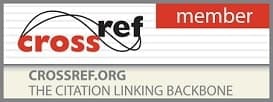- Printed Journal
- Indexed Journal
- Refereed Journal
- Peer Reviewed Journal
P-ISSN: 2394-1685 | E-ISSN: 2394-1693 | CODEN: IJPEJB
Impact Factor (RJIF): 5.38
2021, Vol. 8, Issue 4, Part F
Relationship between shoulder performance and scapular positions in recreational cricket bowlers
Author(s): HS Krishna, PSB Roshan and Jeevan M Dsouza
Abstract:
Background: Cricket is a global sport which requires skill, strategy and physical fitness. The scapula facilitates optimal shoulder complex function to produce efficient movement which maintain mobility and stability to the shoulder complex. The relationship between shoulder performance and scapular positions in recreational cricket bowlers is not well addressed. Hence aim of the study was to find the relationship between shoulder performance and scapular positions in recreational cricket bowlers as to see any relation in these and to prevent further injuries in recreational cricket bowlers.
Materials and Method: A cross-sectional study was conducted on 46 recreational cricket bowlers between ages 20-25 years. Bowlers who played for more than one to 3 hours per week and irregular practice without any history of injury to upper extremity or spine, shoulder or spine surgery were recruited for the study. Shoulder performance and Scapular positions were measured using Upper Quarter Y Balance test (UQYBT) and Lateral Scapular Slide test (LSST) respectively. The Karl Pearson correlation coefficient is used to establish relationship between the variables.
Result and Conclusion: A statistically significant negative correlation found between UQYBT and Lateral scapular slide test at the positions of 0°, 45°, 90° p<0.05. Hence we concluded that there is a relationship between shoulder performance and scapular positions in recreational cricket bowlers. Therefore, dynamic balance training should be added along with scapular strength training to enhance the performance of the recreational cricket bowlers.
Pages: 338-341 | 531 Views 163 Downloads
Download Full Article: Click Here
How to cite this article:
HS Krishna, PSB Roshan, Jeevan M Dsouza. Relationship between shoulder performance and scapular positions in recreational cricket bowlers. Int J Phys Educ Sports Health 2021;8(4):338-341.








 Research Journals
Research Journals